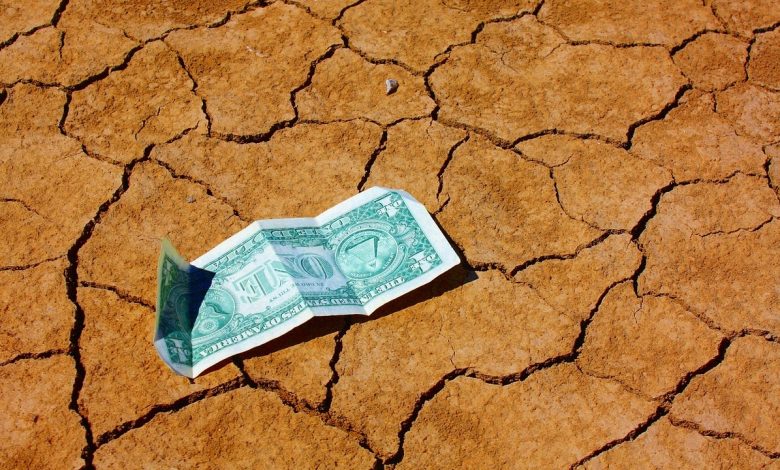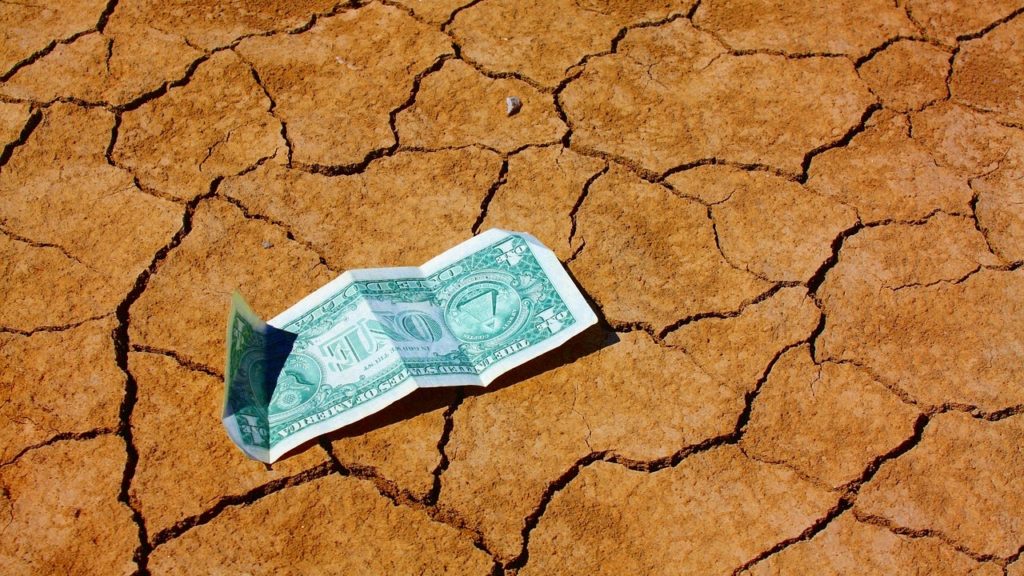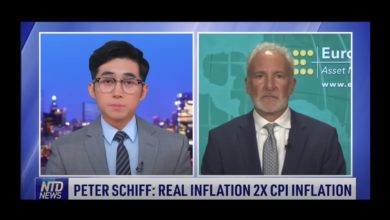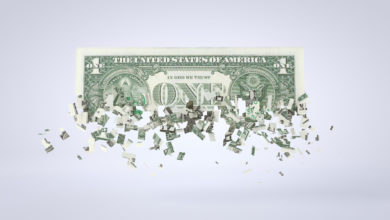Is a Post-Dollar World on the Horizon?

The dollar index recently hit a 20-year high, so this might seem to be an odd time to talk about a dollar decline. But Rockefeller Institute Chairman and Financial Times columnist Ruchir Sharma recently wrote an article arguing that a post-dollar world is coming.
Many analysts argue that the dollar will continue to strengthen because it is the cleanest dirty shirt in the laundry hamper. But Sharma points out several reasons that he believes the dollar is on the verge of a precipitous decline.
Sharma draws comparisons to the bursting of the dot-com bubble. That set off a six-year decline in the dollar that began in 2002. He wrote, “A similar tipping point may be near. This time, the US dollar’s decline could be even more protracted.”
According to Sharma, “underlying imbalances bode badly for the dollar,” noting three specific economic trends that could signal a looming dollar downturn.
- The US current account deficit is nearing 5% of the US GDP. That is “a reliable signal that financial trouble is coming.”
- The US now owes the world a net $18 trillion. That represents 73% of GDP. “This is well above the 50% threshold that has often predicted past currency crises.”
- The US economic growth has slowed and the economy may well be in a recession. According to Sharma, the US economy is poised to grow slower than other developed countries and this typically drags down the dollar.
Dollar strength ebbs and flows. The question is will the next decline run deep enough and last long enough to threaten the greenback’s status as the reserve currency?
Sharma notes that from a historical standpoint, dollar dominance is long in the tooth. Since the 15th century, the world’s most dominant currency has retained that status for an average of 94 years. The dollar has served as the world reserve currency for over 100 years.
Sharma writes that while there is no currency poised to knock the dollar from its perch, “alternatives are emerging.”
Beyond the four major currencies of the United States, Europe, Japan, and the United Kingdom, there is a category of “other currencies” that includes Canadian Dollars, Australian Dollars, Swiss Francs, and Renminbi. From 2% in 2001, it now accounts for 10% of the world’s reserves. Their gains, which accelerated during the pandemic, came mainly at the expense of the US dollar. The dollar now accounts for 59% of foreign exchange reserves, the lowest level since 1995. Digital currencies may appear to be taking a hit right now, but they are also a long-term alternative.”
Sharma also notes that the way the US uses the dollar as an economic weapon makes many countries wary of dollar dominance. The sanction regime against Russia has exacerbated these concerns.
As a global superpower, the US maintains an aggressive, interventionist foreign policy. But the US doesn’t only project power across the globe through its massive military. It also weaponizes the US dollar, using its economic dominance and its privilege as the issuer of the global reserve currency as a carrot-stick tool of foreign policy. The US government showers billions of dollars in foreign aid to “friends.” On the other hand, “enemies” can find themselves locked out of SWIFT, the global financial system that the US effectively controls using the dollar.
Sharma says oversized US influence through the dollar has prompted many countries to accelerate their search for options. “The next step could be towards currency blocs rather than a single base currency.”
Finally, the US dollar does enjoy a status as a “safe haven” for investors. Again, most perceive it as the cleanest dirty shirt in the laundry basket. But Sharma notes that investors seem to be in no hurry to buy American assets. “They reduce risk everywhere and keep the resulting cash in dollars.”
It’s worth remembering that this isn’t a vote of confidence in the US economy, and bullish analysts offered the same reason to buy tech stocks at their recent peak valuations. There is no alternative. It ended badly”
The dollar may be fine right now. But things can change quickly in today’s world. Power is fleeting – and that included economic power. The dollar’s demise may well be a long way in the future. Or it could be around the corner. As Sharma’s article shows, there are reasons to be wary.
Call 1-888-GOLD-160 and speak with a Precious Metals Specialist today!
Buka akaun dagangan patuh syariah anda di Weltrade.
Source link







